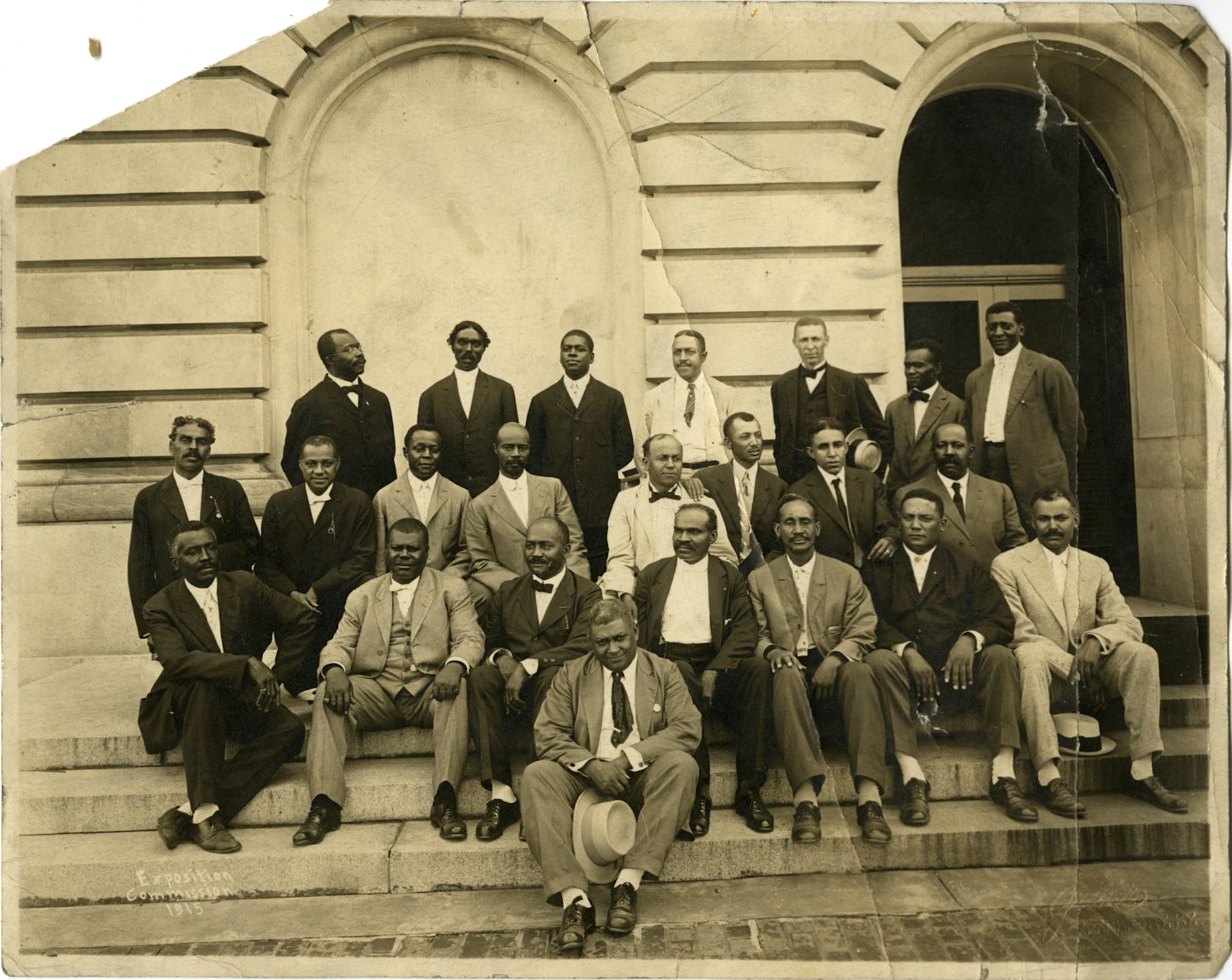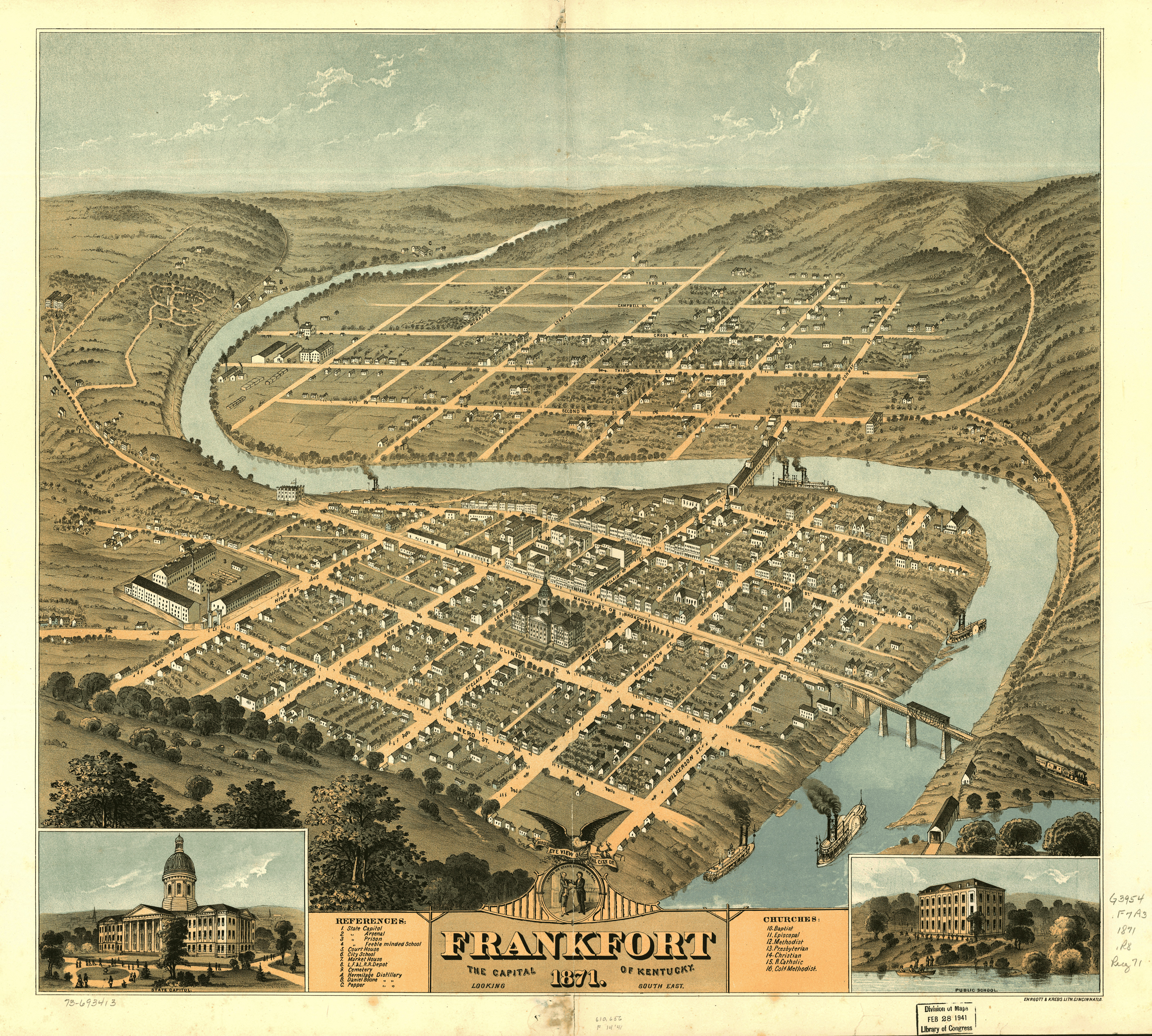|
Green Pinckney Russell
Green Pinckney Russell (1861/1863–1939), was an American teacher, principal, school district supervisor, and college president. He was the first licensed African-American teacher in Lexington, Kentucky. Russell was the first "Supervisor of Negro Schools" in Lexington, and he served two-terms as president of Kentucky State Industrial College for Colored Persons (now Kentucky State University). Biography Green Pinckney Russell was born on December 25 in either 1861 or 1863 in Logan County, Kentucky. He attended public schools in Russellville, Kentucky, and went on to graduate from Berea College (1885), and Wilberforce University (1913). He was the principal of "Colored School No. 1." (later known as Russell School) in Lexington, Kentucky. In 1895, Colored School No. 1, was renamed the Russell School by the mayor H. C. Duncan of Lexington. With Russell was the first "Supervisor of Negro Schools" in Lexington from 1896 to 1912. He was twice president of Kentucky State Indu ... [...More Info...] [...Related Items...] OR: [Wikipedia] [Google] [Baidu] |
Logan County, Kentucky
Logan County is a county in the southwest Pennyroyal Plateau area of Kentucky, United States. As of the 2020 census, the population was 27,432. Its county seat is Russellville. History The county is named for Benjamin Logan, who had been second in command of the Kentucky militia during the American Revolutionary War and was a leader in bringing statehood to the area. Created from Lincoln County on September 1, 1792, Logan was the 13th Kentucky county in order of formation. Its original territory stretched from the Mississippi in the west to the Little Barren River in the east, and from the Green and Ohio Rivers in the north to the Tennessee border on the south; since then, 28 other counties have been formed within that area.Richardson, Evelyn B. ''Kentucky Encyclopedia''p. 568 "Logan County". University Press of Kentucky (Lexington), 1992. Accessed July 27, 2013. The settlement of Logan Court House was made the county seat at its incorporation under the name Russellville. ... [...More Info...] [...Related Items...] OR: [Wikipedia] [Google] [Baidu] |
Frankfort, Kentucky
Frankfort is the List of capitals in the United States, capital city of the U.S. state of Kentucky. It is a list of Kentucky cities, home rule-class city and the county seat, seat of Franklin County, Kentucky, Franklin County in the Upland South. As of the 2020 United States census, 2020 census, the population was 28,602, making it the List of cities in Kentucky, 13th largest city in Kentucky and 4th smallest U.S. state capital by population. Located along the Kentucky River, Frankfort is the principal city of the Frankfort, Kentucky micropolitan area, which includes all of Franklin and Anderson County, Kentucky, Anderson counties. Before Frankfort was founded, the site was a Ford (crossing), ford across the Kentucky River, along one of the great buffalo trails used as highways in Colonial history of the United States, colonial America. English explorers first visited the area in the 1750s. The site evidently received its name after an incident in 1780, when pioneer Stephen Fra ... [...More Info...] [...Related Items...] OR: [Wikipedia] [Google] [Baidu] |
People From Logan County, Kentucky
The term "the people" refers to the public or Common people, common mass of people of a polity. As such it is a concept of human rights law, international law as well as constitutional law, particularly used for claims of popular sovereignty. In contrast, a people is any plurality of Person, persons considered as a whole. Used in politics and law, the term "a people" refers to the collective or community of an ethnic group or nation. Concepts Legal Chapter One, Article One of the Charter of the United Nations states that "peoples" have the right to self-determination. Though the mere status as peoples and the right to self-determination, as for example in the case of Declaration on the Rights of Indigenous Peoples, Indigenous peoples (''peoples'', as in all groups of indigenous people, not merely all indigenous persons as in ''indigenous people''), does not automatically provide for independence, independent sovereignty and therefore secession. Indeed, judge Ivor Jennings i ... [...More Info...] [...Related Items...] OR: [Wikipedia] [Google] [Baidu] |
People From Frankfort, Kentucky
The term "the people" refers to the public or common mass of people of a polity. As such it is a concept of human rights law, international law as well as constitutional law, particularly used for claims of popular sovereignty. In contrast, a people is any plurality of persons considered as a whole. Used in politics and law, the term "a people" refers to the collective or community of an ethnic group or nation. Concepts Legal Chapter One, Article One of the Charter of the United Nations states that "peoples" have the right to self-determination. Though the mere status as peoples and the right to self-determination, as for example in the case of Indigenous peoples (''peoples'', as in all groups of indigenous people, not merely all indigenous persons as in ''indigenous people''), does not automatically provide for independent sovereignty and therefore secession. Indeed, judge Ivor Jennings identified the inherent problems in the right of "peoples" to self-determination, as i ... [...More Info...] [...Related Items...] OR: [Wikipedia] [Google] [Baidu] |
Kentucky State University Faculty
Kentucky (, ), officially the Commonwealth of Kentucky, is a landlocked state in the Southeastern region of the United States. It borders Illinois, Indiana, and Ohio to the north, West Virginia to the northeast, Virginia to the east, Tennessee to the south, and Missouri to the west. Its northern border is defined by the Ohio River. Its capital is Frankfort and its most populous city is Louisville. As of 2024, the state's population was approximately 4.6 million. Previously part of colonial Virginia, Kentucky was admitted into the Union as the fifteenth state on June 1, 1792. It is known as the "Bluegrass State" in reference to Kentucky bluegrass, a species of grass introduced by European settlers which has long supported the state's thoroughbred horse industry. The fertile soil in the central and western parts of the state led to the development of large tobacco plantations similar to those in Virginia and North Carolina, which utilized enslaved labor prior to the passag ... [...More Info...] [...Related Items...] OR: [Wikipedia] [Google] [Baidu] |
Berea College Alumni
Berea may refer to: Places Greece * Beroea, a place mentioned in the Acts of the Apostles, now known as Veria or Veroia * Veria, historically spelled and sometimes transliterated as Berea and site of the ancient city of Beroea Lesotho * Berea District Romania * Berea, a village in Ciumești Commune, Satu Mare County * Berea, a tributary of the Valea Neagră in Satu Mare County South Africa * Berea, Durban * Berea, Gauteng United States * Berea, Iowa * Berea, Kentucky * Berea, Baltimore, Maryland * Berea, Nebraska * Berea, North Carolina, an unincorporated community in Granville County * Berea, Ohio * Berea, South Carolina * Berea, Giles County, Tennessee * Berea, Warren County, Tennessee * Berea, Virginia * Berea, West Virginia Other uses * Helena Espinosa Berea (c. 1895 – c. 1960), Mexican academic * Berea College, in Berea, Kentucky * Berea International Theological Seminary, Seoul, South Korea * Berea Sandstone, a type of sandstone named for Berea, Ohio * ' ... [...More Info...] [...Related Items...] OR: [Wikipedia] [Google] [Baidu] |
19th-century American Educators
The 19th century began on 1 January 1801 (represented by the Roman numerals MDCCCI), and ended on 31 December 1900 (MCM). It was the 9th century of the 2nd millennium. It was characterized by vast social upheaval. Slavery was Abolitionism, abolished in much of Europe and the Americas. The First Industrial Revolution, though it began in the late 18th century, expanded beyond its British homeland for the first time during the 19th century, particularly remaking the economies and societies of the Low Countries, France, the Rhineland, Northern Italy, and the Northeastern United States. A few decades later, the Second Industrial Revolution led to ever more massive urbanization and much higher levels of productivity, profit, and prosperity, a pattern that continued into the 20th century. The Catholic Church, in response to the growing influence and power of modernism, secularism and materialism, formed the First Vatican Council in the late 19th century to deal with such problems an ... [...More Info...] [...Related Items...] OR: [Wikipedia] [Google] [Baidu] |



